Dialogue
*Traduccion al español, luego de la version en ingles.
This trip to the Andes mountains of Ushcurume district, in Cutervo -Cajamarca- Peru was planned as part of an artistic research I am developing called "Dialogue". This project will help me unveil parts of my identity and win inspiration in my roots. A dialogue between my modern knowledge and my original cultures, will open my mind to new inspiration, new world and new perspectives. This motivation brought me to Peru in June 2022, to travel and explore my background in the Andes like I never had done before. This project is possible to realise thanks to the grant contribution of the Mondriaan Fund, the Stichting Stokroos and the Stichting Niemeijer Fonds.
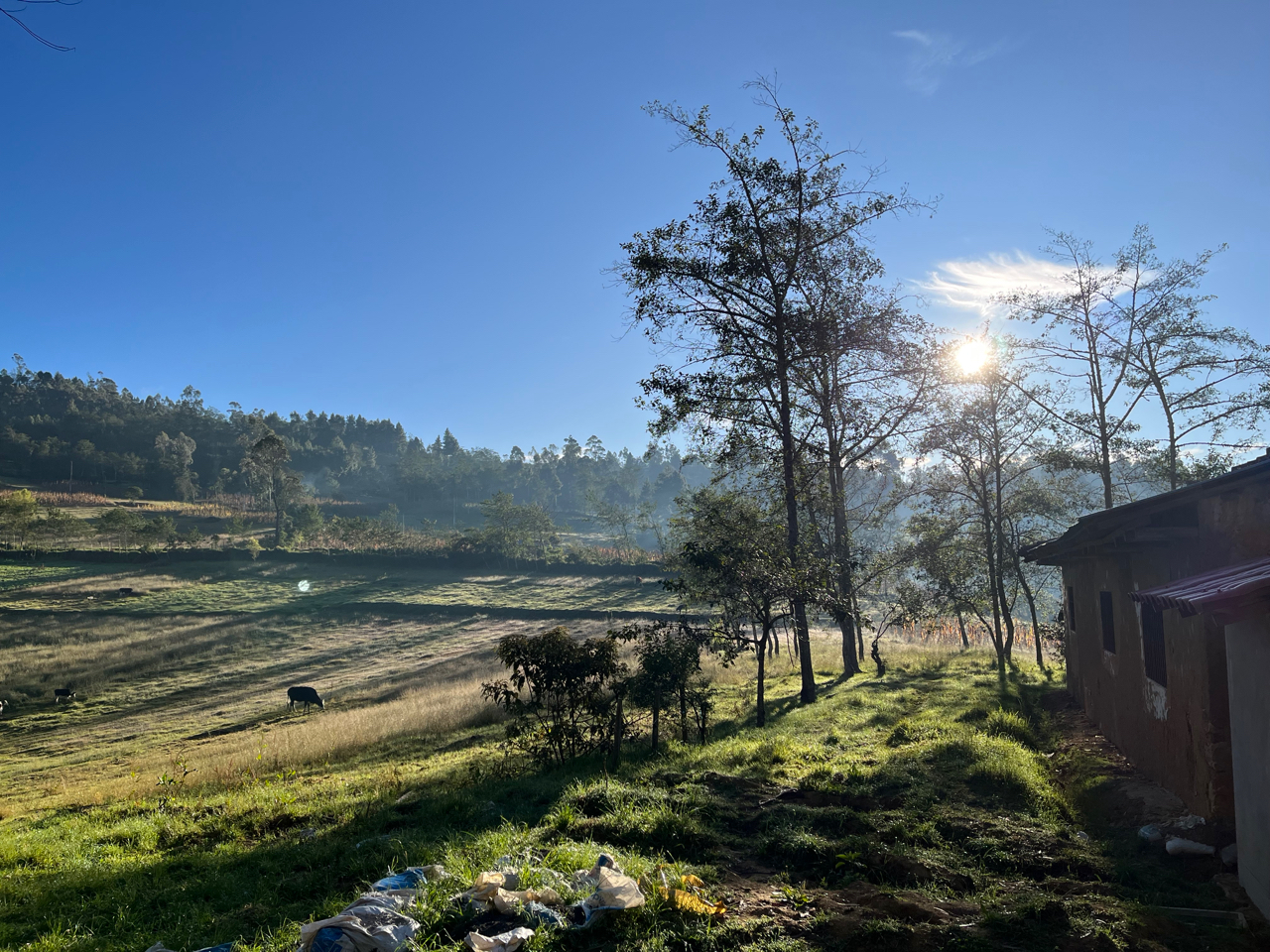
landscape at Ushcurume
I planned this trip together with my father, who lived in Lima for the last 50 years, and has been my guide during my whole life. He passed me some knowledge from his farmer background in the mountains of Peru, his knowledge about a spiritual reality within nature, and the capacities to heal contained in our hearts. The idea was to travel together in June-August 2022 and see the places where he had worked and hanged during his youth. Specially with him, because I was acquainted with my father’s family but we were not really close. So I needed an introduction from him. But he unexpectedly passed away in February 2022 at the age of 82. I did not understand, cried and asked heaven to return him but there was no way back. He would not return to this human existence. A huge sadness and resignation compelled me, I would not travel with him anymore and return to his places. I will not hug him anymore, and I miss him. But I had to do this trip anyway, I had a big motivation to do it, and I decided to go.
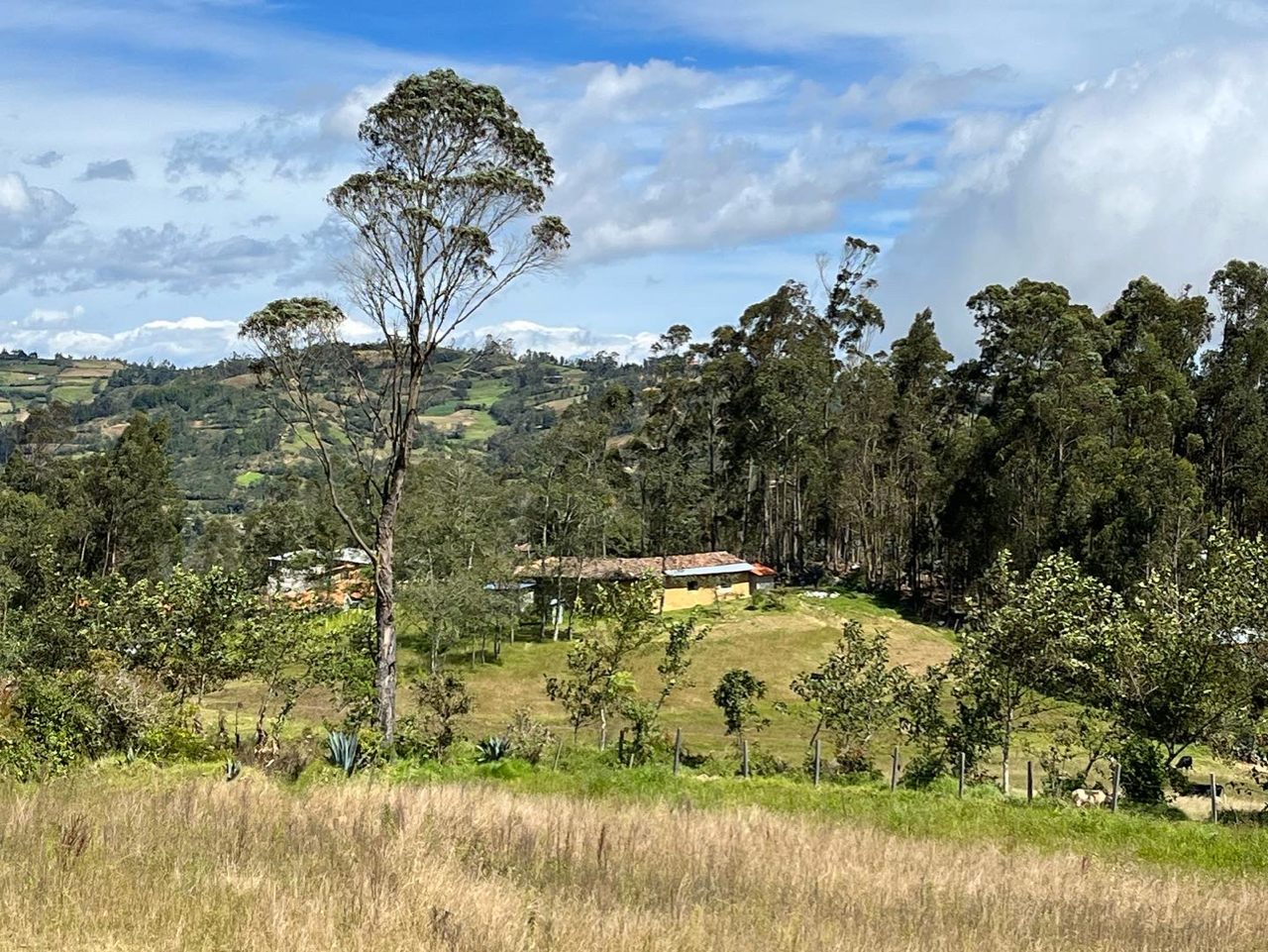
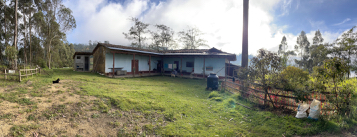
I asked everyone in my family from father’s side to guide me, and when I arrived a warm welcome was waiting for me at the beautiful and humble countryside house of Ushcurume. The house is located in the middle of the peaceful land, surrounded by mountains and high enough to see a wide landscape from the entrance door, and also from the back side. I saw my aunties there, they were cooking special dishes from the region for me, for us. We hugged and I felt a deep return from my soul to a place that has always been in my heart; my Peruvian countryside, my Andes, my Ushcurume. It is funny that I have never lived there, but I immediately felt a feeling of belonging. I guess this is something my father past me, he taught me to be like a farmer in life: work hard, love, care and wait with faith that the fruits will come for all. And this spirit of his, was with me all my life, and specially here in Ushcurume. The next days I accompanied my auntie Vicky and stayed with her and the family at this house. There I learned to cook these especial dishes, in the traditional style that people cook here in a artesanal wood stove. For which we collected every day wood from the surrounding forest.
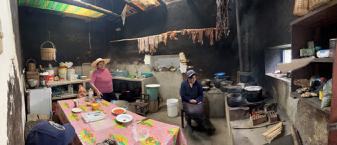
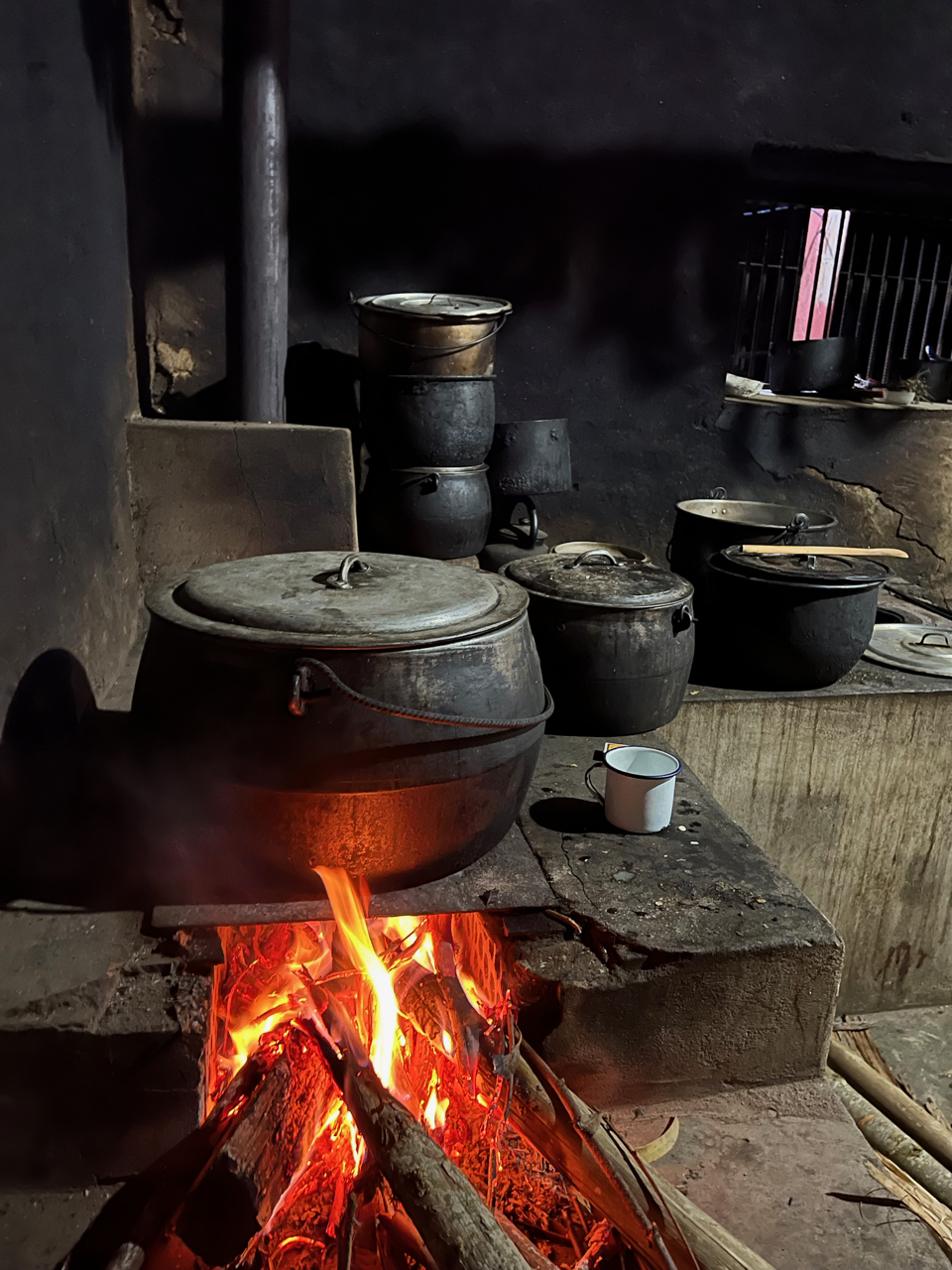
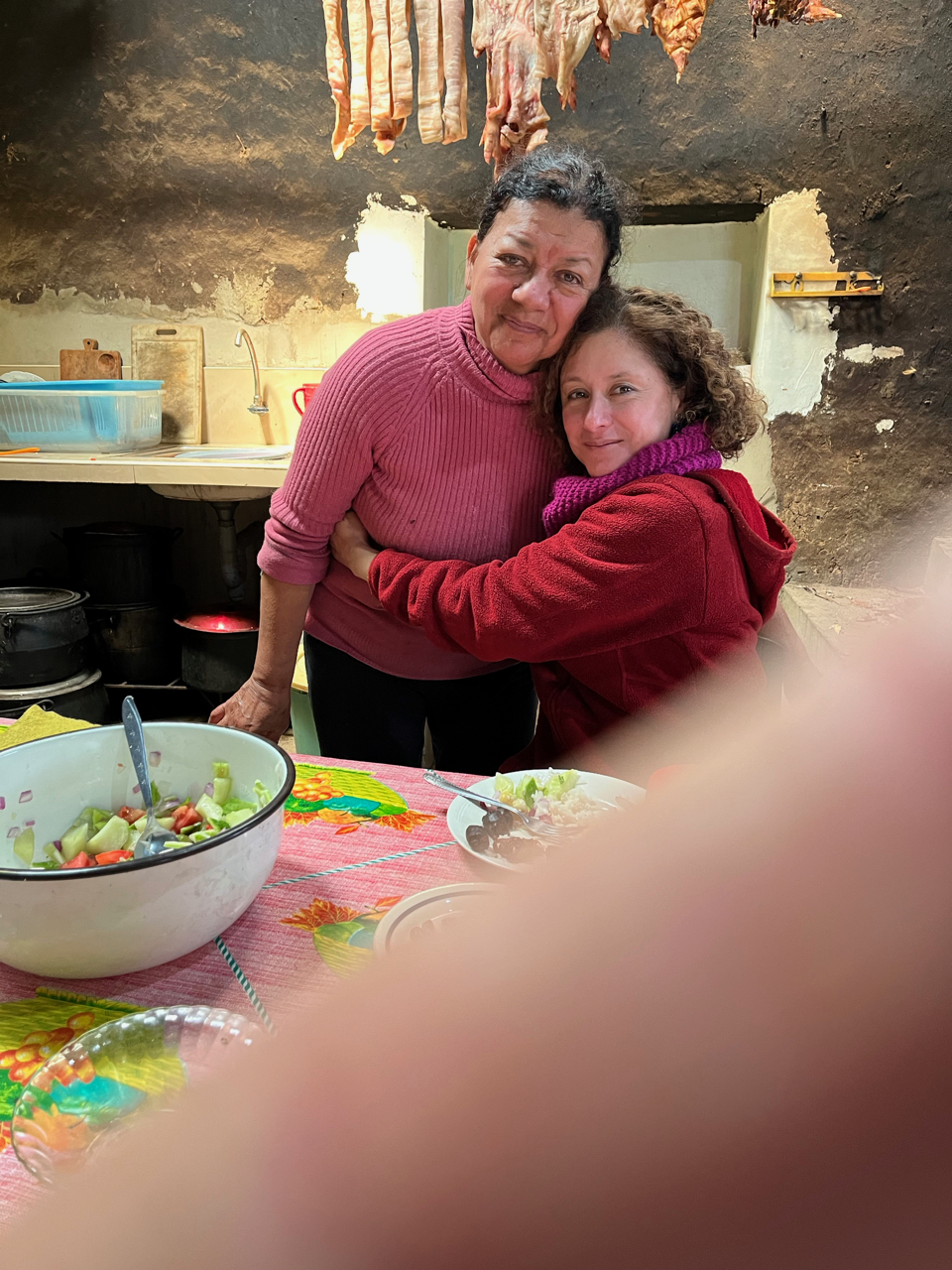
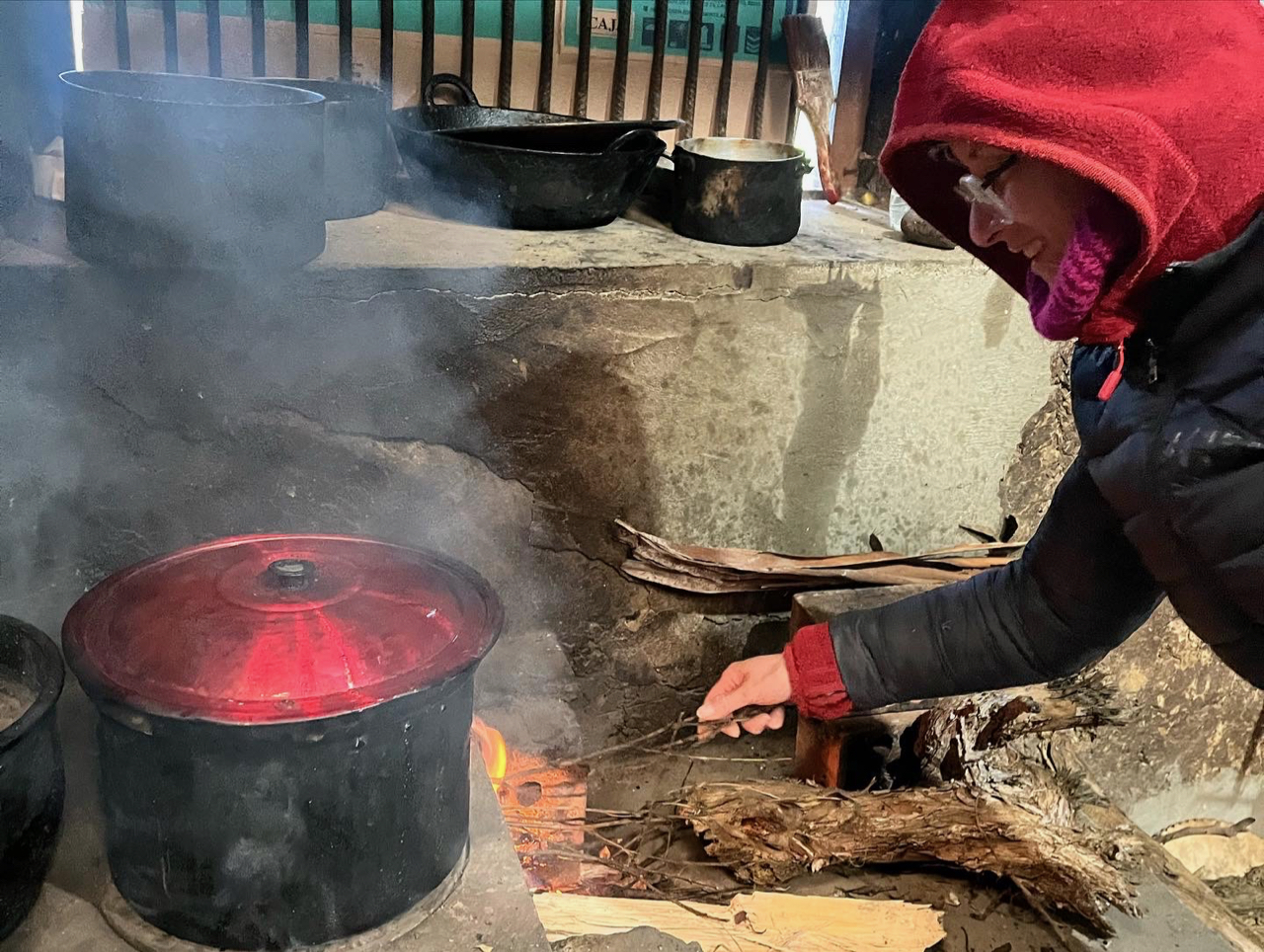
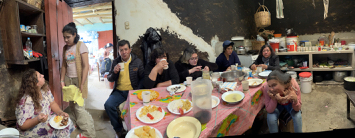
I also learned that coming from a big city to a countryside like this is a big shock, I was not accustomed to the silence, the country sounds of nature, the humbleness and spirituality of people, the fluid relationship that they have with nature. My whole family has this gift to feel and have a close relationship with nature. This trip has being a reunion from the heart with my family in Ushcurume, with people I did not live close to, but who were always in the nicest memories of my father. What I discovered in Ushcurume-Cutervo was what my dad taught me a little bit. Communication with other dimensions of life, like the world of dead people, is something very normal and it has even a sensorial part. This is what keeps people linked to the legacy of their ancestors, and in this way they never betray their roots and learned values.

My family told me how they felt my father nearby the days of his passing away. He was many kilometres away but they could feel his spirit walking around. He left a valuable legacy to the family, he was a self made man and his life is still an example for us all. He is one of the most resilient and hard working people I have ever met. And he learned how to do this and stay strong in the process, by being conscious of all.
At Ushcurume I felt that the relationship with the spirit and spiritual life is stronger, this is why I felt the presence of my father much stronger here than anywhere else. Here everything dilutes in one, spirit and material world are one. It is here easier to feel the spirit of the trees, and of the mountains, of the grass, of the adobe of the house, the spirit of the walls and of the photos hanging on them. I felt the presence of my grandparents as well, my grandmother specifically who was a healer, and who I felt very close the days I was lodging in this house.
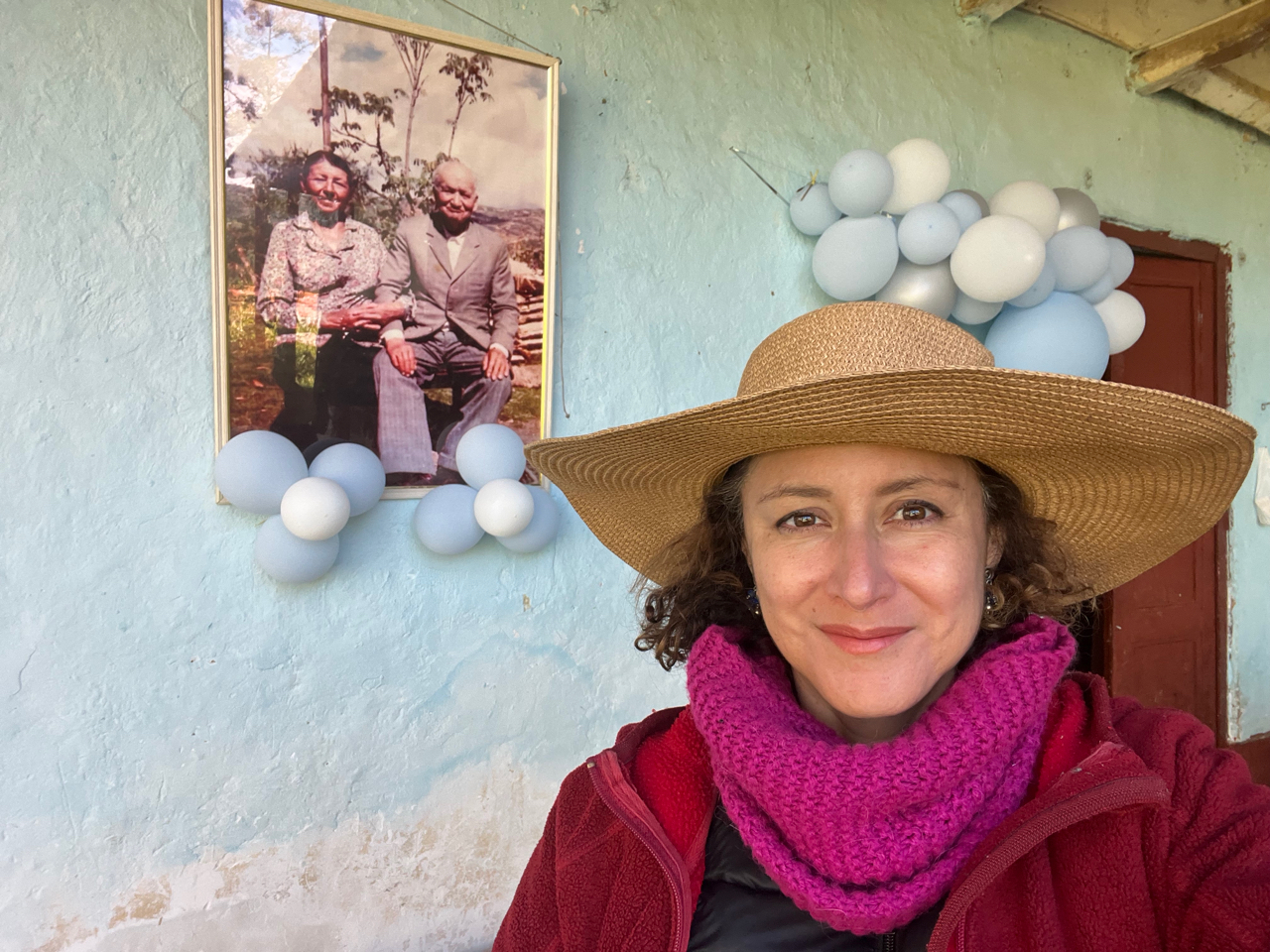
My father never left Ushcurume in his heart, and during the last days of his life my father told my mother that he wanted to return to Ushcurume for his last days, without knowing they were coming soon. His mind never left that intense life in the country, where the human sweat feeds the soil and the trees. This is why people feel the surrounding trees as part of the family. Trees and people are one, mountains and legs are one. I know my father is there were there is no limit for the spirit.
I felt that this land was asking me to care, to care for others, and gave me permission to do it. I am thankful for this beautiful connection I felt in Ushcurume, where the land touches the soul, and invite us to feed mother earth caring for new fruits. I felt the spirit of the land, of the pachamama. Here the soil, animals, plants and humans are one. Here the candour and innocence of a child is like the most beautiful flower of the country. Here all is one: woman=land=flower=light=awakening=life. There is a sort of symbiosis that helps life continue even in the most difficult situations, where nature can hit hard on our human existence.


Coexistence is here very harmonious, between people, and people and earth. Local people are very welcoming, kind, humble and happy. They may have no rich bank accounts but most of them are strong and healthy, happy and thankful, even when they have to struggle sometimes to bring their children up with the little economical resources they have. Religious celebrations are an example of their happy faith. Their saints are portrait with the same candour of the Cutervina population.
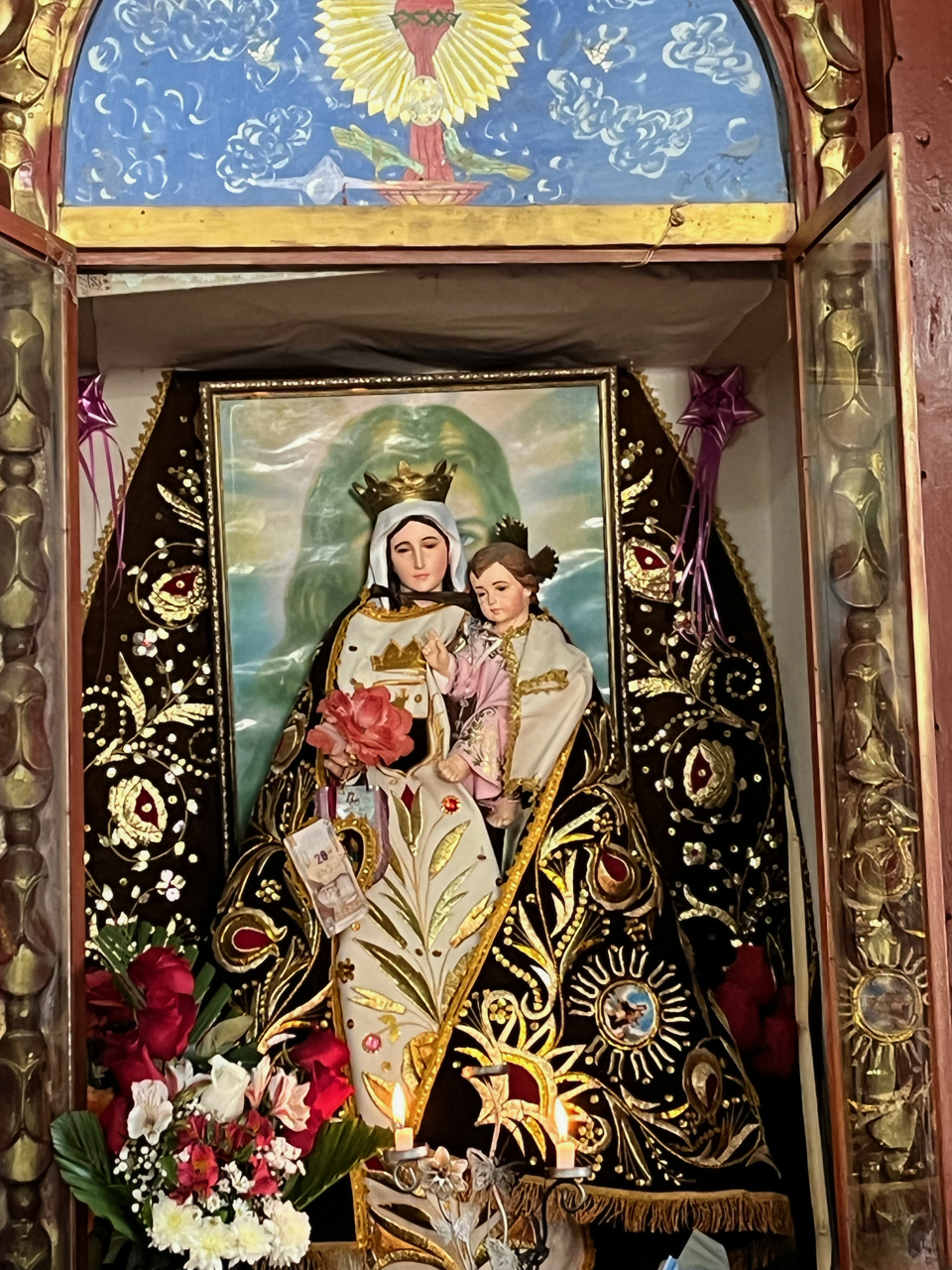
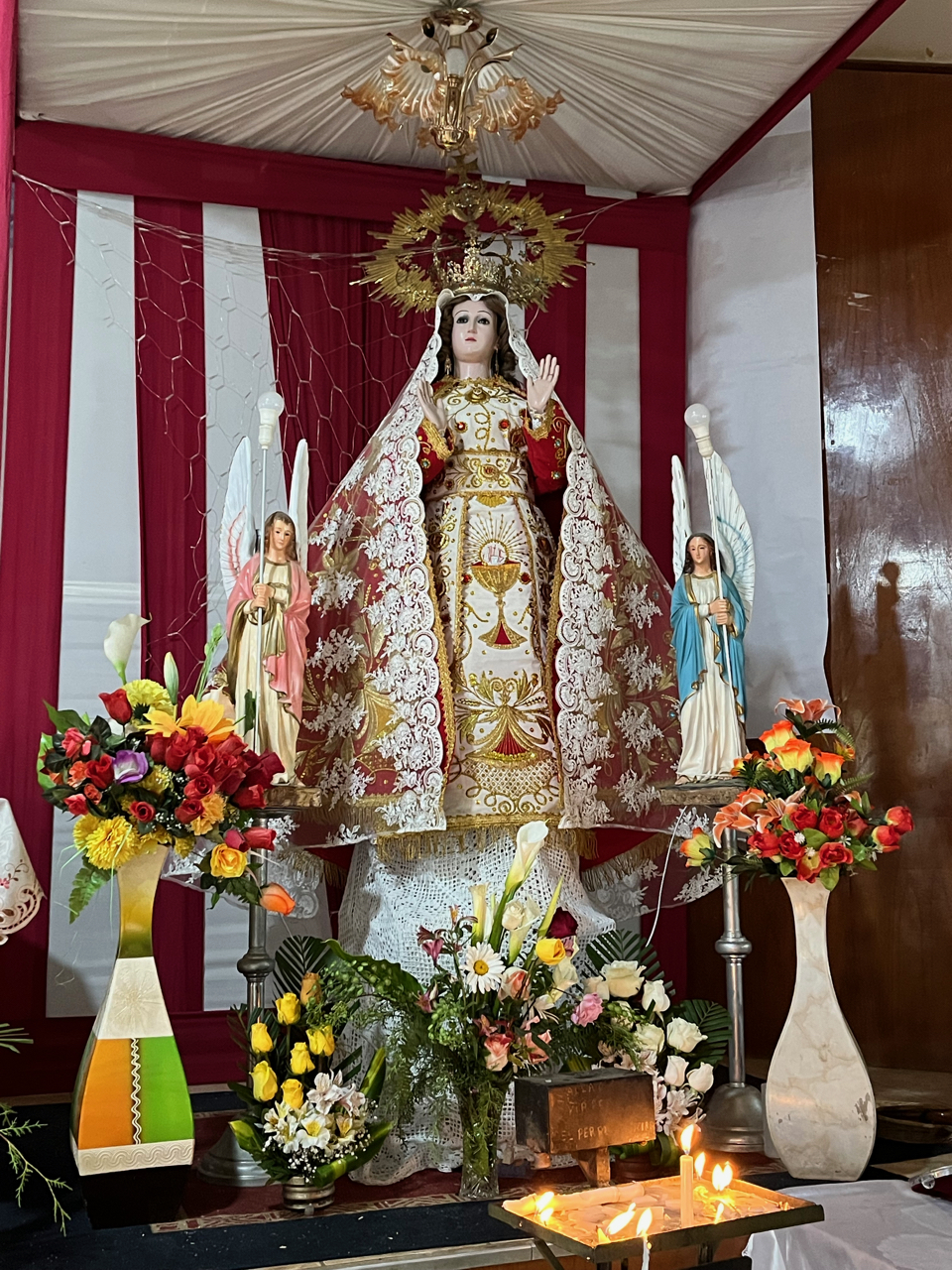
Their happiness comes from this deep relationship they have with the land that feeds them, with the mountains that protect them, with the sun that gives energy, with the trees that give shadow and make relaxing sounds in their dance with the wind. All houses have a wooden stove from which delicious dishes come out, produced with the fruits of the land. Corn is prepared in all its forms and tastes: humitas, tamales, mote, sopa de pepian o de chochoca, panecitos dulces, etc. We even become a bit of corn when we live there. Corn fed ancestral population and still does. Being corn is to be eternal.
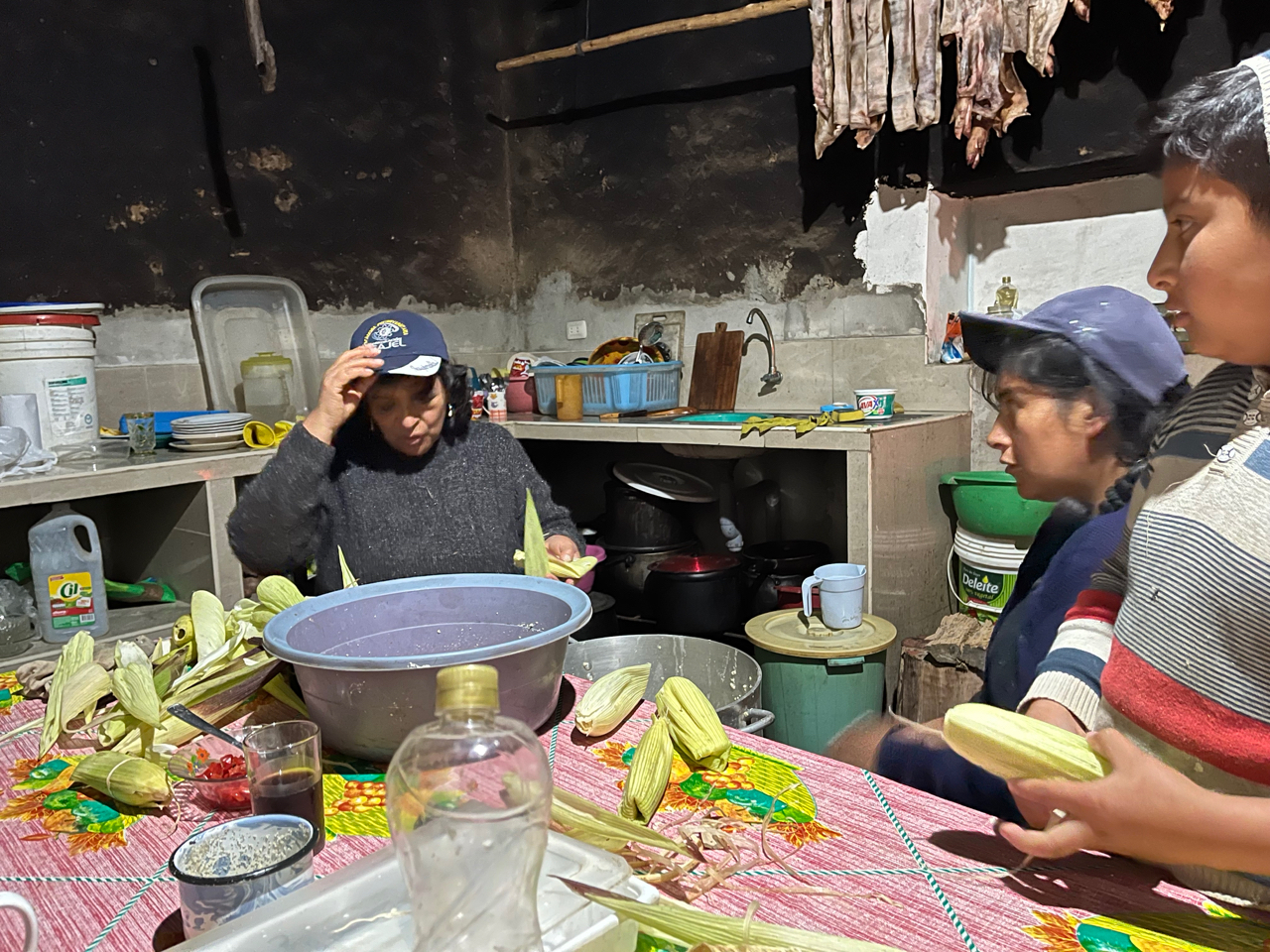
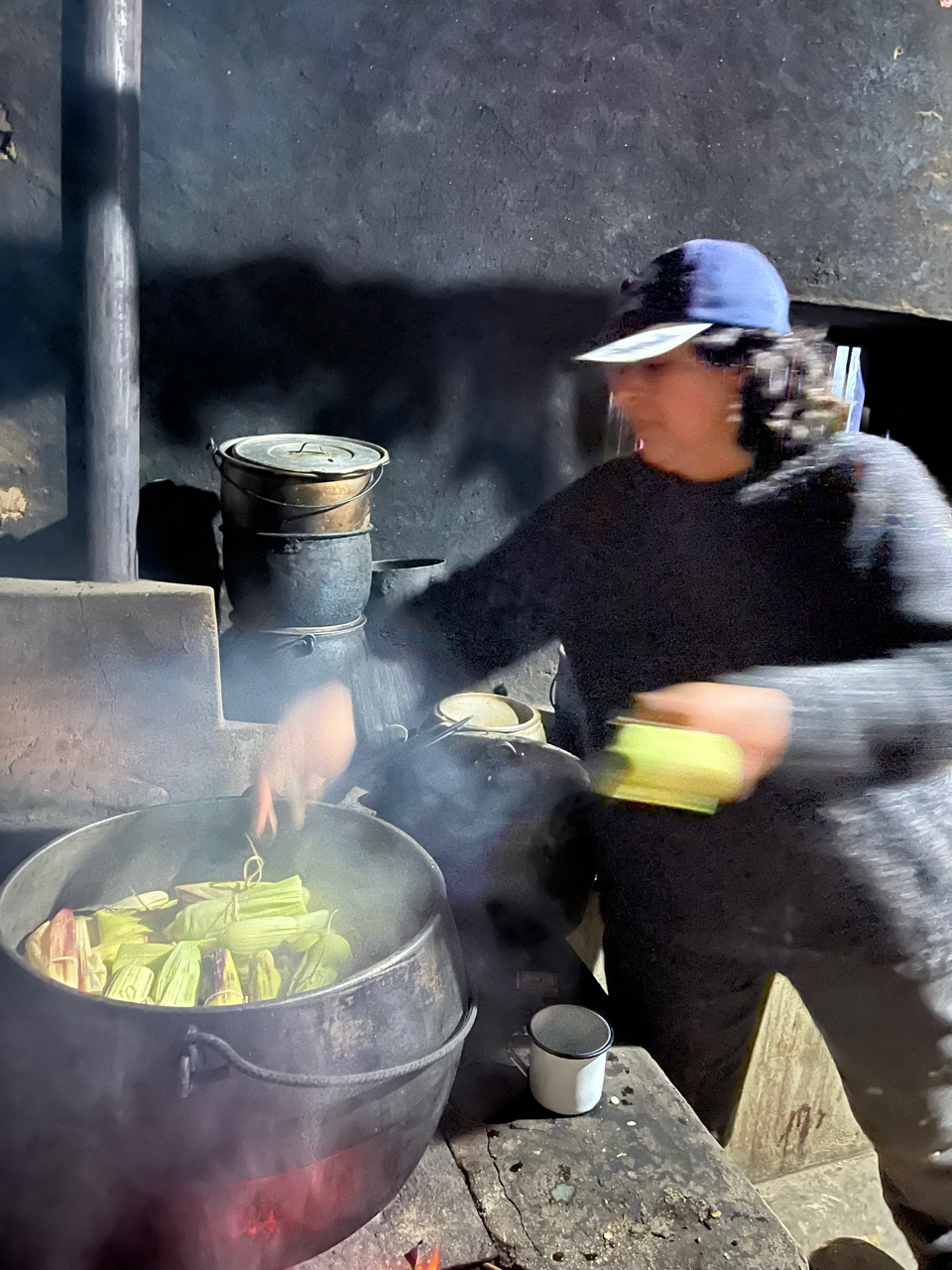
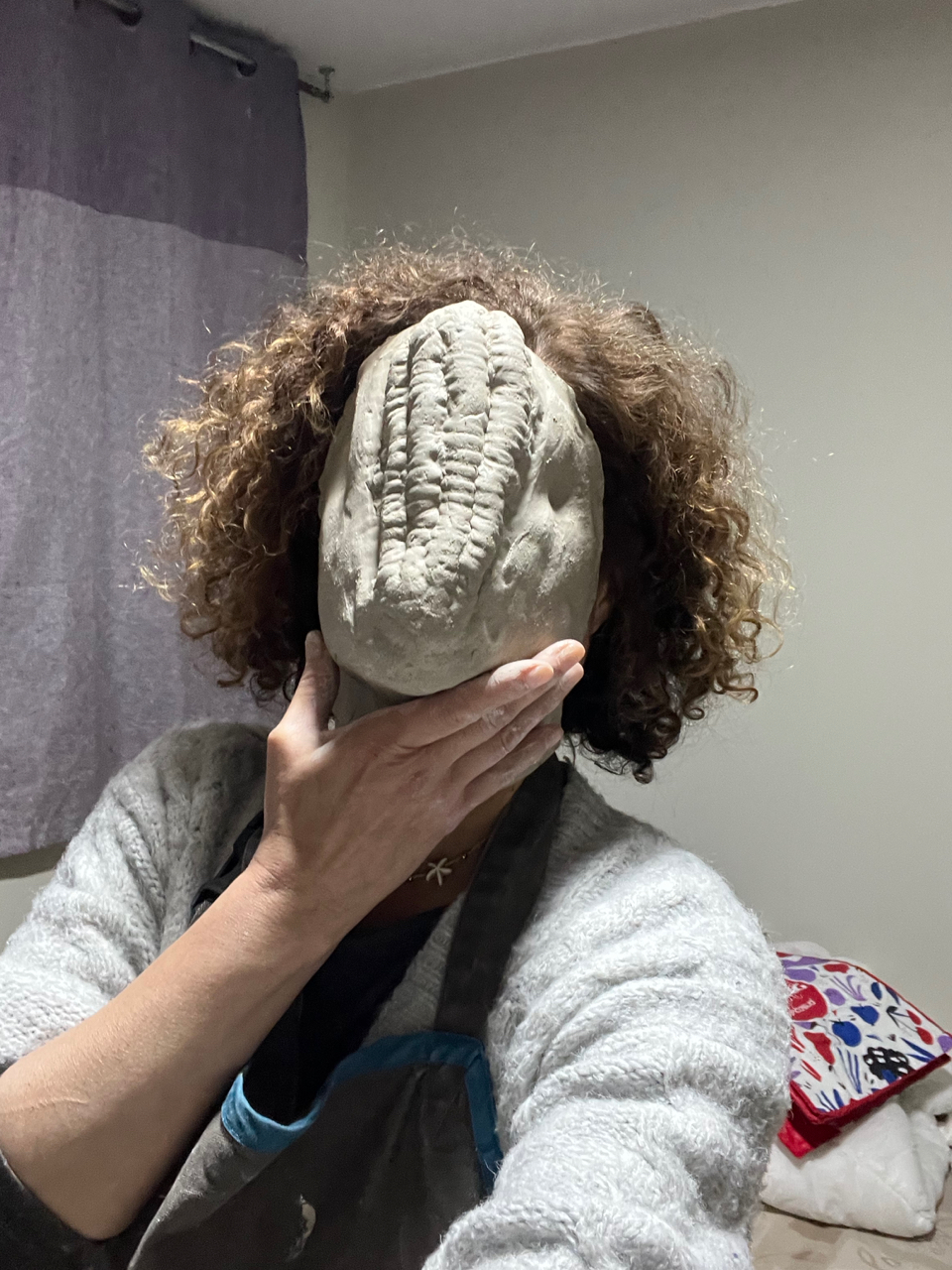

Caring is part of daily language, everyone practices it. Specially the ones who heal, they can feel intensely other people’s feelings. There are healing rituals that my aunties develop with eggs, that can connect with our bodies and absolve energies from us in these rituals. There are many things I don't know exactly how they work, but it is the connection between all beings that make people here stronger.
When I asked about art to my family and neighbours, who are mostly busy with working the land and building corn, they responded to me that they make beautiful blankets. I visited my cousin Paula, who showed me her art. And she will soon start making one for me, and I am buying it from her.
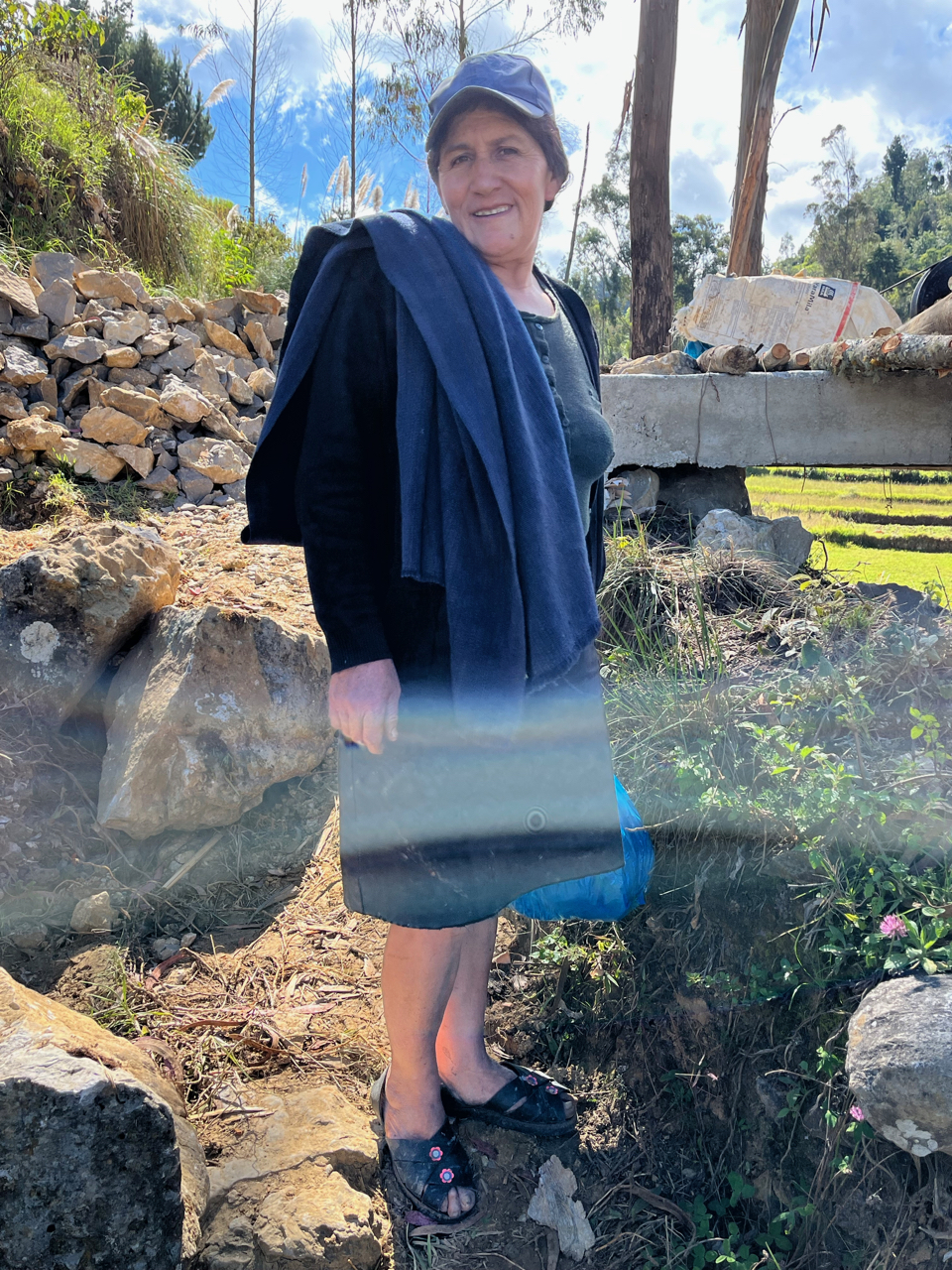
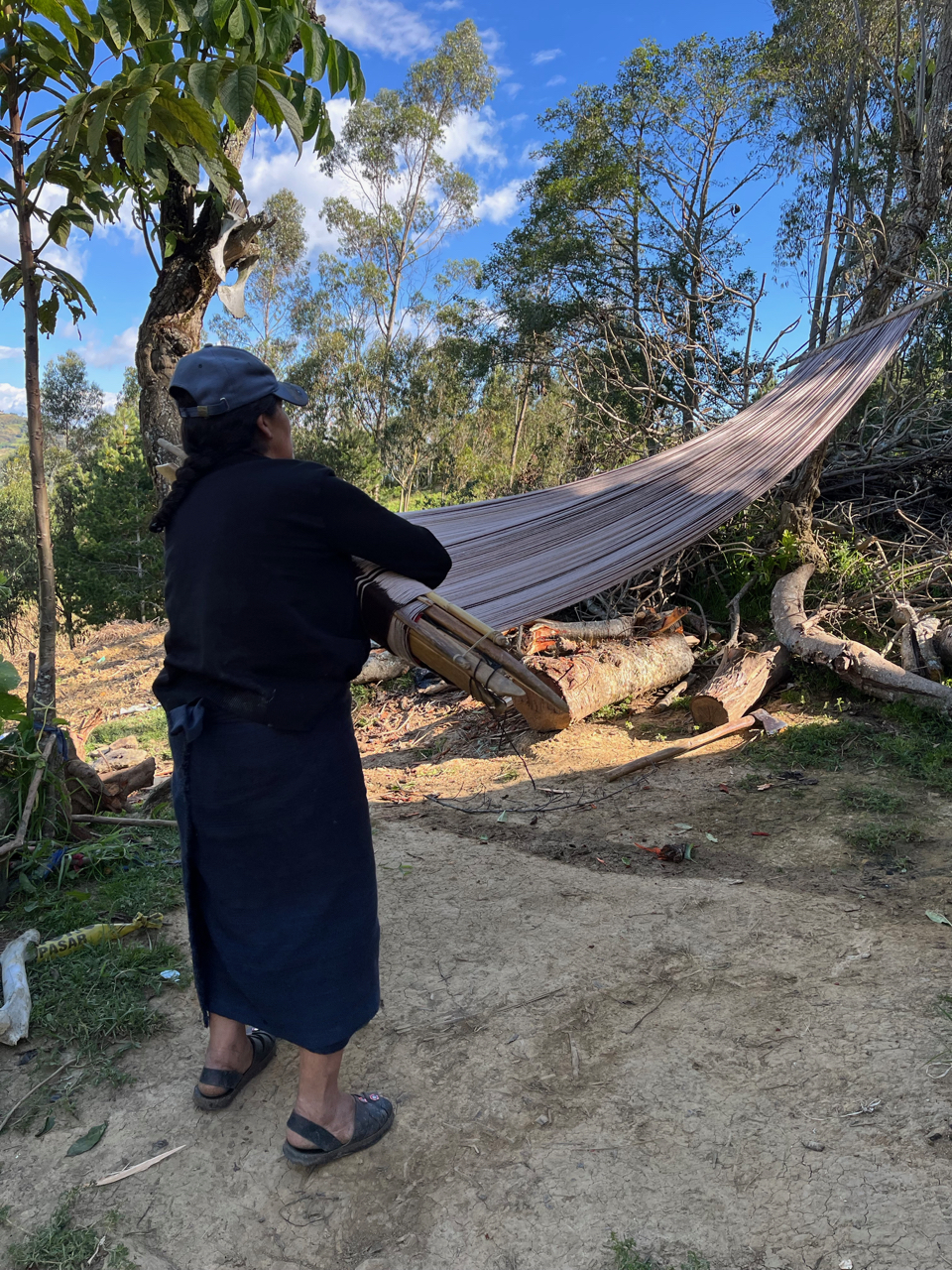
My family wants to make part of the country house a museum, because they still keep the agriculture instruments from the grandparents, and this is historical, and may be useful for the future generations, to appreciate even more their roots and the legacy of our family.
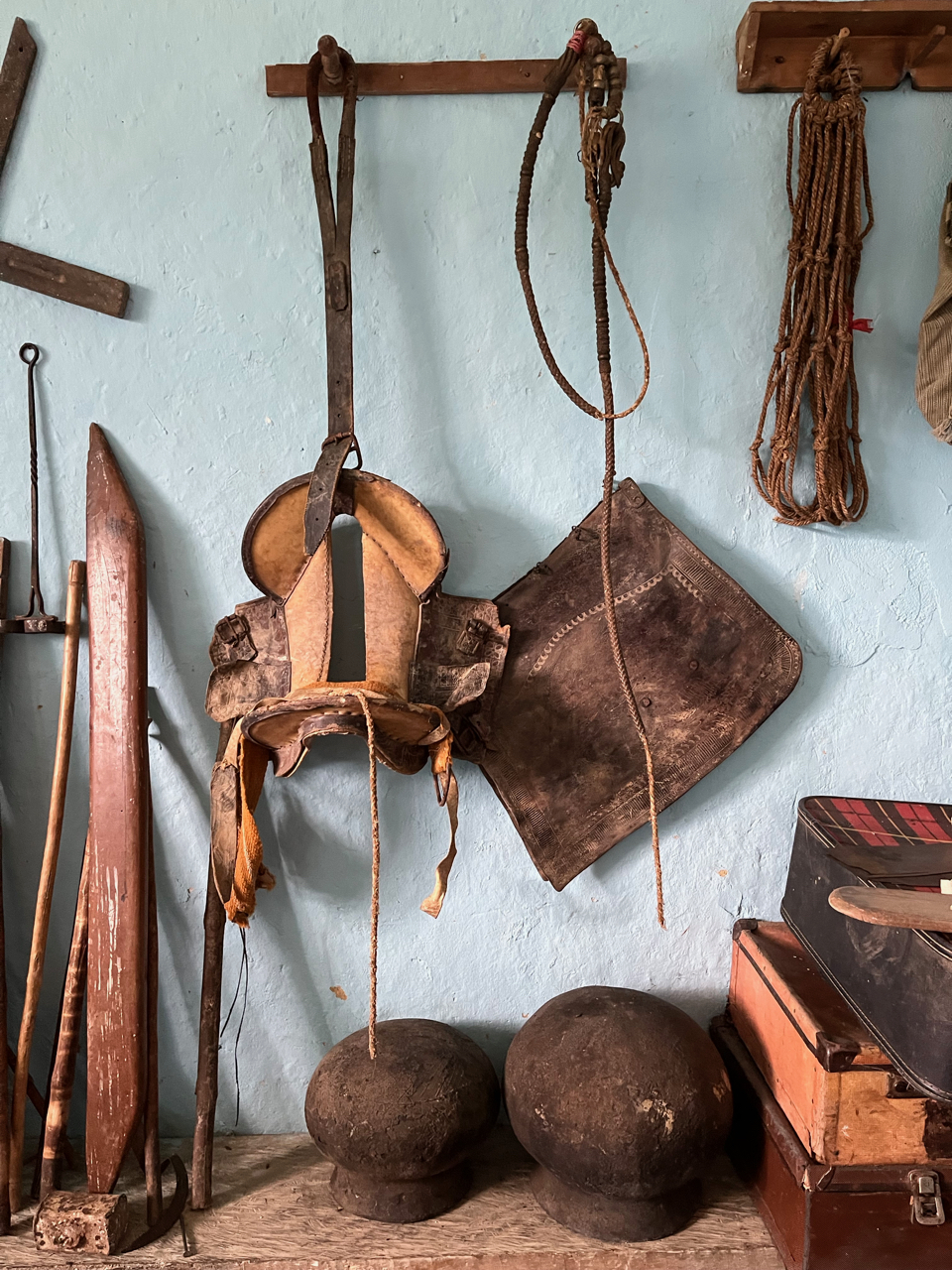

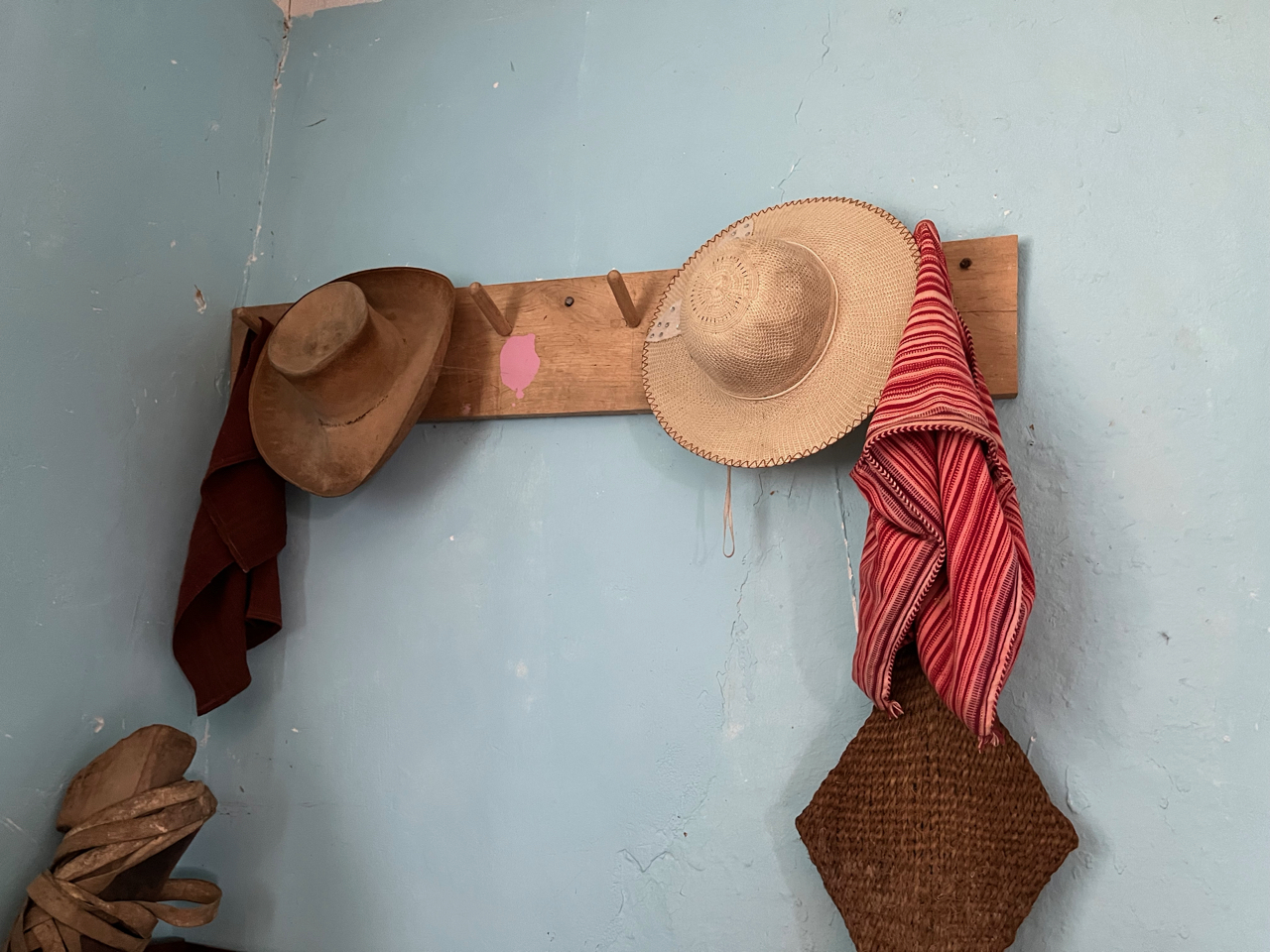
Art and museums must be useful and be alive is the feeling that I get from my conversations. Art should be there between people, with people, by people. They should not be considered something apart from the daily life. As it is created by the people for the people, with love and care. This statement contradicts reality, because in the contemporary we can only be witness of art if we are consumers of it, but not if we coexist with it. In the vision of Ushcurume, art is part of life and can be shared freely, in western society art is not shared for free. We could argument that art could be shared freely, but then many professions like payed curators, artists, art historians, conservators, critics, gallerists, etc would disappear. In this sense my own profession is a construction of colonial modernity, born in it and developed in its “professional” way within it. These thoughts bring me a dilema in relation to my own practice and how I would like to experience it, as an open contribution to our human coexistence, to try to make the world a bit better, less egoistic and more happy. I am open to play a dialogue between my modern existence and my indigenous knowledges. Cause I am a product of many nations and many knowledges, and life consists of a constant dialogue, so my artistic practice will be that too.
Traduccion al Espanol:
Este viaje a la cordillera de los Andes en el distrito de Ushcurume, Cutervo -Cajamarca- Perú, fue planeado como parte de una investigación artística que estoy desarrollando llamada "Dialogo". Este proyecto me ayudará a revelar partes de mi identidad y ganar inspiración en mis orígenes. Un diálogo entre mi conocimiento moderno y mis culturas originales, abrirá mi mente a una nueva inspiración, un nuevo mundo y nuevas perspectivas. Esta motivación me trajo a Perú en junio de 2022 para viajar y explorar mi experiencia en los Andes como nunca antes lo había hecho. Este proyecto es posible realizarlo gracias a la contribución de la subvención del Fondo Mondriaan, Stichting Stokroos y Stichting Niemeijer Fonds.
Planeé este viaje junto con mi padre, quien vivió en Lima durante los últimos 50 años y ha sido mi guía durante toda mi vida. Me transmitió algunos conocimientos de su experiencia como agricultor en las montañas de Perú, su conocimiento sobre una realidad espiritual dentro de la naturaleza y las capacidades para sanar contenidas en nuestros corazones. La idea era viajar juntos en junio-agosto de 2022 y conocer los lugares donde había trabajado y pasado durante su juventud. Sobre todo con él quería yo viajar, porque el conocía a la familia de mi padre pero no éramos muy cercanos. Así que necesitaba una presentación de él. Pero inesperadamente falleció en febrero de 2022 a la edad de 82 años. No entendí, lloré y le pedí al cielo que lo devolviera pero no había vuelta atrás. No volvería a esta existencia humana. Una gran tristeza y resignación me sumio, no viajaría más con él y no regresaríamos juntos a sus lugares. No lo abrazaré más, y lo extraño. Pero tenía que hacer este viaje de todos modos, tenía una gran motivación para hacerlo y decidí ir.
Pedí a todos los miembros de mi familia por parte de padre que me guiaran, y cuando llegué me esperaba una cálida bienvenida en la hermosa y humilde casa de campo de Ushcurume. La casa está ubicada en medio de la tierra tranquila, rodeada de montañas y lo suficientemente alta como para ver un amplio paisaje desde la puerta de entrada, y también desde la parte trasera. Allí vi a mis tías, estaban cocinando platos especiales de la región para mí, para nosotros. Nos abrazamos y sentí un profundo regreso de mi alma a un lugar que siempre ha estado en mi corazón; mi campo Peruano, mis andes, mi Ushcurume. Es curioso que nunca haya vivido allí, pero inmediatamente sentí un sentimiento de pertenencia. Supongo que esto es algo que mi padre me enseñó, a ser como un agricultor en la vida: trabajar duro, amar, cuidar y esperar con fe que los frutos llegarán para todos. Y este espíritu suyo, estuvo conmigo toda mi vida, y especialmente aquí en Ushcurume. Los días siguientes acompañé a mi tía Vicky y me quedé con ella y la familia en esta casa. Allí aprendí a cocinar estos platos especiales, al estilo tradicional que la gente cocina aquí en un horno de leña artesanal. Para lo cual recolectamos todos los días madera del bosque circundante.
También aprendí que venir de una gran ciudad a un campo como este es un gran shock, no estaba acostumbrada al silencio, a los sonidos del campo de la naturaleza, a la humildad y espiritualidad de las personas, a la relación fluida que tienen con la naturaleza. Toda mi familia tiene este don de sentir y tener una relación cercana con la naturaleza. Este viaje ha sido un reencuentro desde el corazón con mi familia en Ushcurume, con gente que no vivía cerca de mi, pero que siempre estuvo en los recuerdos más lindos de mi padre. Lo que descubrí en Ushcurume-Cutervo fue lo que mi papá me enseñó un poquito: la comunicación con otras dimensiones de la vida, como el mundo de los muertos, es algo muy normal y tiene incluso una parte sensorial. Esto es lo que mantiene a las personas ligadas al legado de sus ancestros, y de esta manera nunca traicionar sus raíces y valores aprendidos.
Mi familia me contó cómo sintieron a mi padre cerca los días de su fallecimiento. Estaba a muchos kilómetros de distancia pero podían sentir su espíritu caminando. Dejó un valioso legado a la familia, fue un hombre que surgió por si mismo y su vida sigue siendo un ejemplo para todos nosotros. Es una de las personas más resistentes y trabajadoras que he conocido. Y aprendió cómo hacer esto y mantenerse fuerte en el proceso, siendo consciente de todo.
En Ushcurume sentí que la relación con el espíritu y la vida espiritual es más fuerte que en otros lugares, por eso sentí la presencia de mi padre mucho más fuerte aquí que en cualquier otro lugar. Aquí todo se diluye en uno, espíritu y mundo material son uno. Aquí es más fácil sentir el espíritu de los árboles, y de las montañas, de la hierba, del adobe de la casa, el espíritu de las paredes y de las fotos colgadas en ellas. Sentí la presencia de mis abuelos también, mi abuela específicamente que era curandera, y a quien sentí muy cerca los días que estuve hospedada en esta casa.
Mi padre nunca dejó a Ushcurume en su corazón, y durante los últimos días de su vida mi padre le dijo a mi madre que quería volver a Ushcurume para sus últimos dias, sin saber que estos ya estaban prontos. Su mente nunca abandonó esa intensa vida en el campo, donde el sudor humano alimenta la tierra y los árboles. Es por eso que las personas sienten los árboles circundantes como parte de la familia, los olorosos eucaliptos. Los árboles y las personas son uno, las montañas y las piernas son uno, y así podemos seguir asociándonos infinitamente. Sé que mi padre está allí donde no hay límite para el espíritu.
Sentí que esta tierra me pedía que me cuidara, que cuidara a los demás, y me dio permiso para hacerlo. Agradezco esta hermosa conexión que sentí en Ushcurume, donde la tierra toca el alma, y nos invita a alimentar a la madre tierra creando nuevos frutos. Sentí el espíritu de la tierra, de la pachamama. Aquí el suelo, los animales, las plantas y los humanos son uno. Aquí el candor y la inocencia de un niño es como la flor más hermosa de la tierra. Aquí todo es uno: mujer=tierra=flor=luz=despertar=vida. Hay una especie de simbiosis que ayuda a que la vida continúe incluso en las situaciones más difíciles, donde la naturaleza puede golpear duramente nuestra existencia humana.
La convivencia es aquí muy armoniosa, entre la gente, y la gente y la tierra. La gente local es muy acogedora, amable, humilde y alegre. Puede que no tengan cuentas bancarias ricas, pero la mayoría son fuertes y saludables, felices y agradecidos, incluso cuando a veces tienen que luchar para criar a sus hijos con los pocos recursos económicos que tienen. Las celebraciones religiosas son un ejemplo de su fe feliz. Sus santos son retratados con el mismo candor de la población Cutervina.
Su felicidad proviene de esa profunda relación que tienen con la tierra que los alimenta, con las montañas que los protegen, con el sol que les da energía, con los árboles que les dan sombra y emiten sonidos relajantes en su danza con el viento. Todas las casas cuentan con un fogón de leña del que salen deliciosos platos, elaborados con los frutos de la tierra. El maíz se prepara en todas sus formas y sabores: humitas, tamales, mote, sopa de pepián o de chochoca, panecitos dulces, etc. Incluso nos convertimos un poco en maíz cuando vivimos allí. El maíz alimentó a la población ancestral y aún lo hace a la actual. Ser maíz es ser eterno.
Cuidar es parte del lenguaje cotidiano, todos lo practican. Especialmente los que sanan, pueden sentir intensamente los sentimientos de otras personas. Hay rituales de sanación que mis tías desarrollan con huevos, que pueden conectarse con nuestros cuerpos y absolver energías de nosotros en estos rituales. Hay muchas cosas que no sé exactamente cómo funcionan, pero es la conexión entre todos los seres lo que hace que las personas aquí sean más fuertes.
Cuando le pregunté sobre el arte a mi familia y vecinos, que en su mayoría se dedican a trabajar la tierra y hacer crecer el maíz, me respondieron que ellos hacen cobijas hermosas. Visité a mi prima Paula, quien me mostró su arte. Y pronto comenzará a hacer uno para mí, y se lo compraré.
Mi familia quiere hacer parte de la casa de campo un museo, porque aún conservan los instrumentos de agricultura de los abuelos, y esto es histórico, y puede ser útil para las futuras generaciones, para apreciar aún más sus raíces y el legado de nuestra familia. .
El arte y los museos deben ser útiles y estar vivos es el sentimiento que obtengo de mis conversaciones. El arte debe estar ahí entre la gente, con la gente, por la gente. No deben considerarse algo ajeno a la vida cotidiana. Como es creado por la gente para la gente, con amor y cuidado. Esta afirmación contradice la realidad, pues en la contemporaneidad sólo podemos ser testigos del arte si somos consumidores de él, pero no si convivimos con él. En la visión de Ushcurume, el arte es parte de la vida y se puede compartir libremente, en la sociedad occidental el arte no se comparte gratis. Podríamos argumentar que el arte podría compartirse libremente, pero entonces desaparecerían muchas profesiones como curadores, artistas, historiadores del arte, conservadores, críticos, galeristas, etc. En este sentido mi propia profesión es una construcción de la modernidad colonial, nacida en ella y desarrollada en su forma “profesional” dentro de ella. Estos pensamientos me traen un dilema en relación a mi propia práctica y cómo me gustaría vivirla, como una contribución abierta a nuestra convivencia humana, para tratar de hacer el mundo un poco mejor, menos egoísta y más feliz. Estoy abierta a jugar un diálogo entre mi existencia moderna y mis saberes indígenas. Porque soy producto de muchas naciones y de muchos saberes, y la vida consiste en un diálogo constante, así que mi práctica artística también lo será.